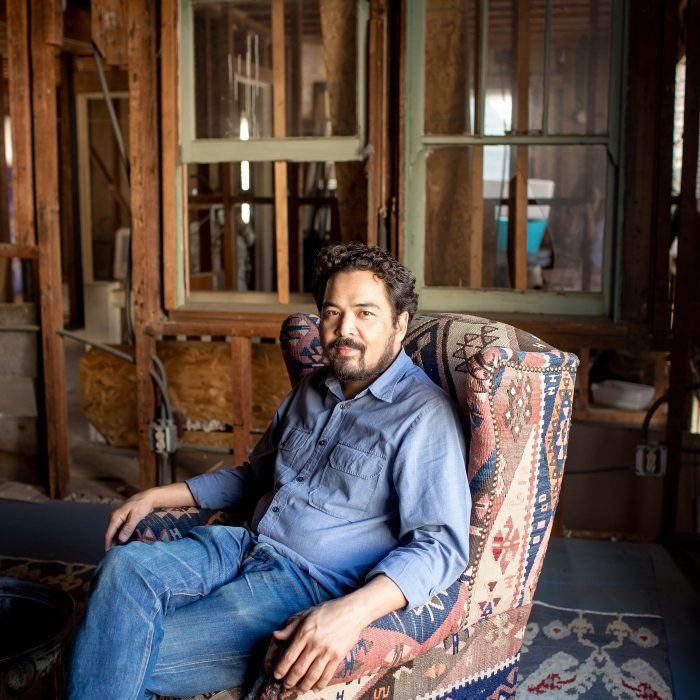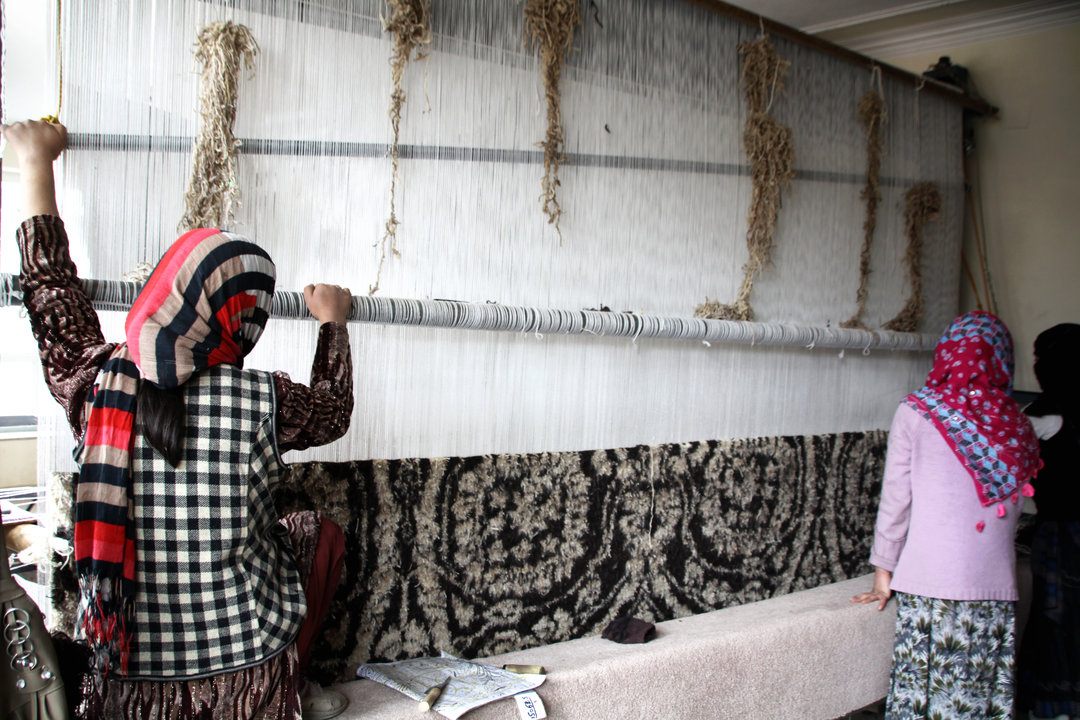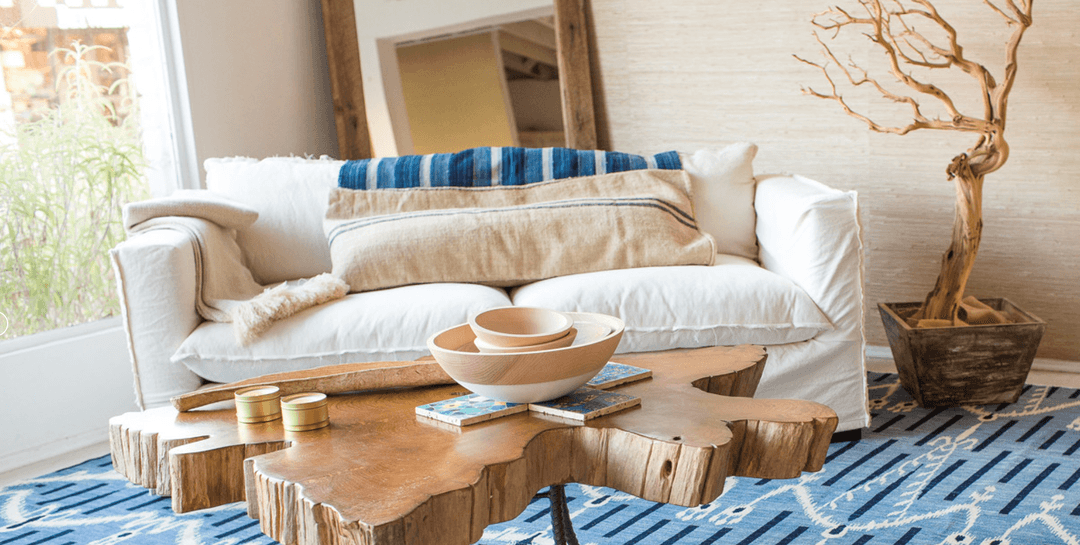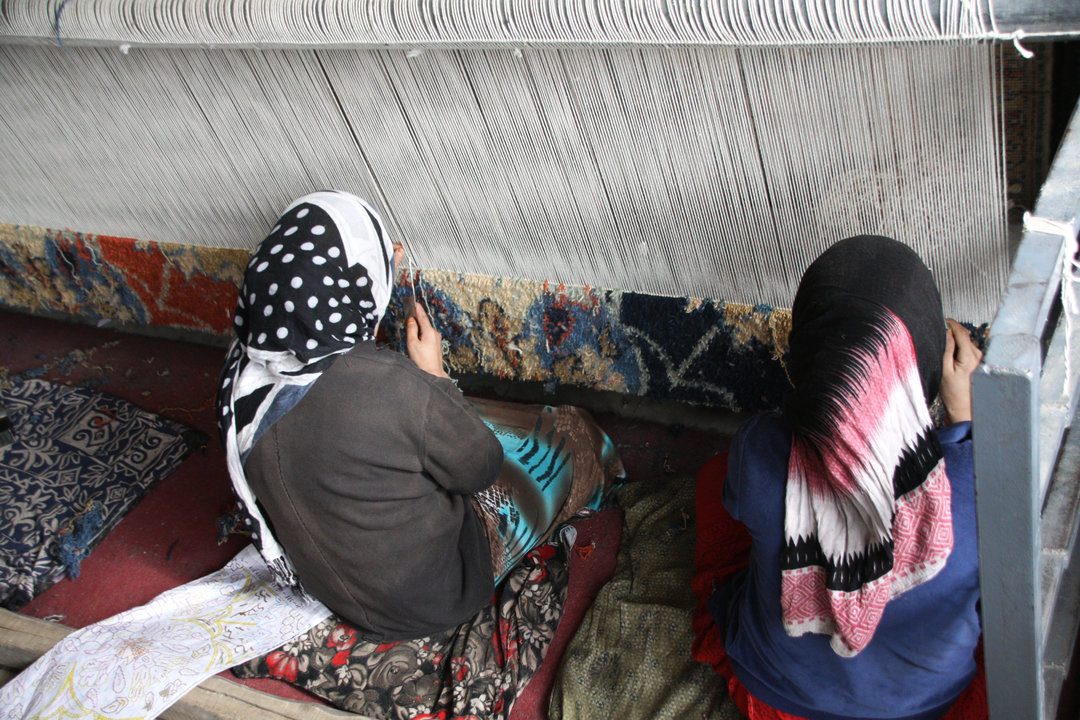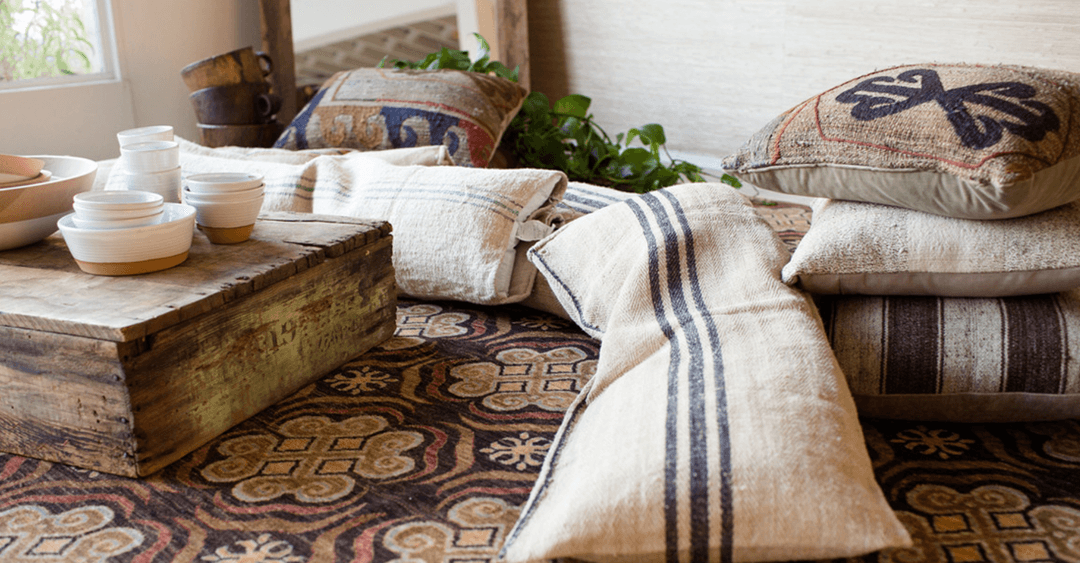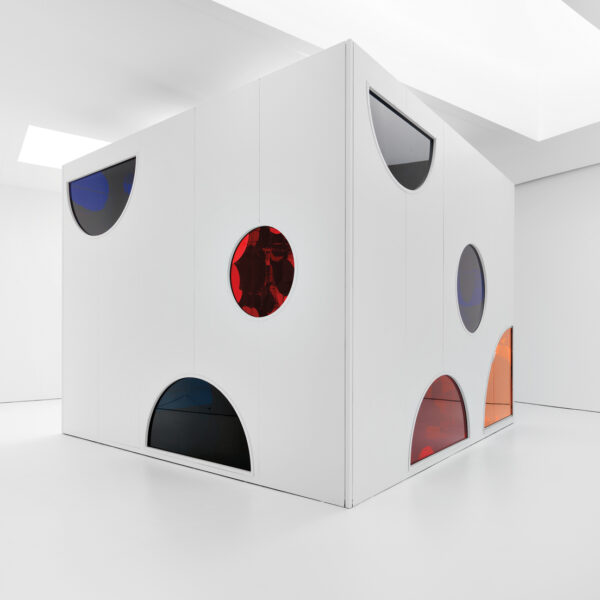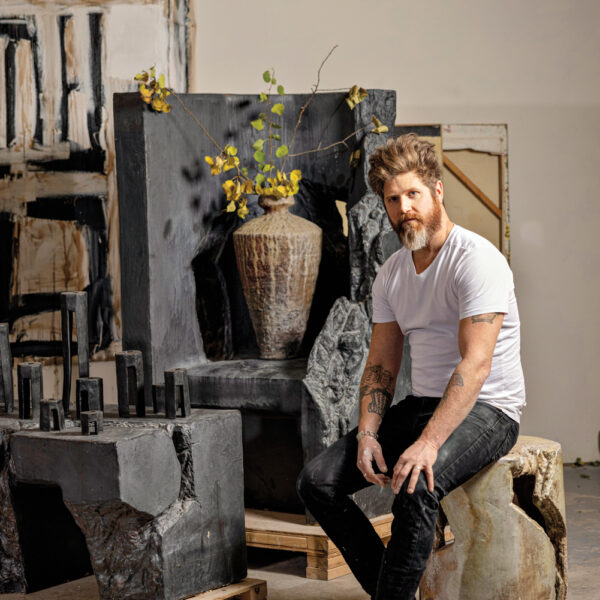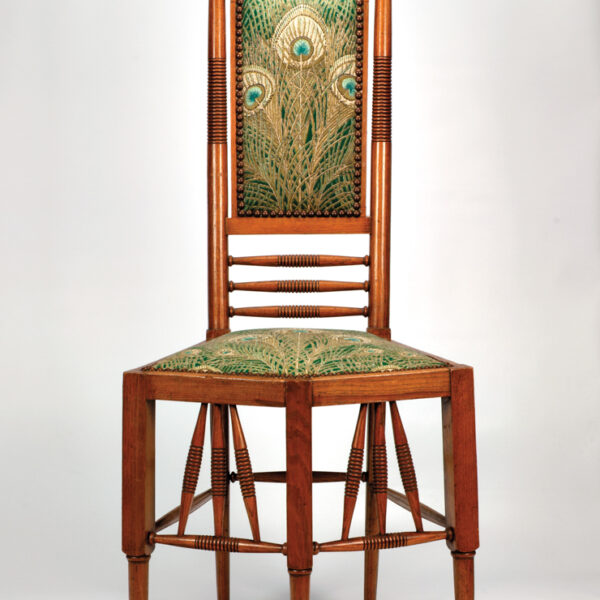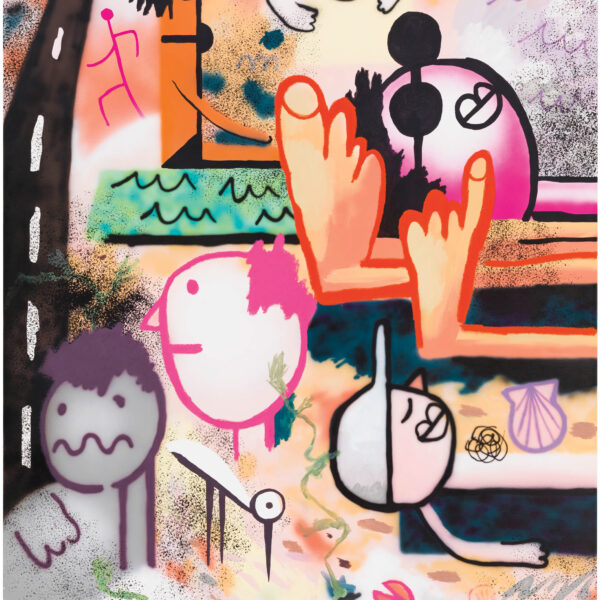All handmade rugs tell a tale, spinning a narrative through silk and wool. In the case of Amadi Carpets, there’s another story as well: In 1984, the Ahmadi family fled war-torn Afghanistan to neighboring Pakistan, eventually emigrating to America with little more than the clothes on their backs and a talent for weaving. Here, Zubair Ahmadi, one of the five brothers behind the brand, shares with us the company’s artistic and philanthropic vision.
For 20 years, Amadi Carpets has created some of the most dynamic and finely made rugs on the market.
How did you learn the skills of the trade?
Growing up in a family of nine children in Afghanistan, we learned the art of weaving from our mother, whose family opened the first silk-weaving factory in Kabul during the 1960s. As a kid, I worked on the loom alongside my brothers after school. We also learned to restore different types of antique rugs and textiles from various countries over the years, so we not only have a knowledge of the construction, but we’re familiar with different techniques and styles. Those same skills eventually led me and my brother, Zabi, to open our own small 400-square-foot workshop in Los Angeles in 1995, where we refurbished rugs found at flea markets and auctions. Today, all five of us–Zabi, Assad, Jawid, Murtaza and me–work collectively on operations and designs at Amadi.
PHOTOS COURTESY AMADI CARPETS
How did you grow the company from a local repair shop to a global enterprise?
Two years after opening our shop, we couldn’t find the quality of rugs we desired. We learned of numerous Afghan weavers who had fled to nearby Peshawar, Pakistan, during the civil war in the 1990s. We feel a deep connection with the people of Afghanistan and were looking for a way to assist those refugees. Zabi made the journey to Peshawar in 1997, and, coincidentally, ran into a foreman who worked in the factory that belonged to our mother’s family. Hiring him and his family led to employing other refugees. As the years went on, five looms turned into 10, 10 turned into 200, and soon we were employing over 1,000 Afghan weavers living in Pakistan.
At what point did you move the weaving operation back to Afghanistan?
After the country’s liberation from the Taliban in 2003, many of the workers returned to Afghanistan. That’s when we opened our first weaving workshop in Kabul and our focus shifted to employing an ignored sector of the population: women. It was our goal to create a safe workplace where women would be empowered to make a living. It wasn’t easy: Even though we were from Afghanistan ourselves, we had to convince fathers, husbands and brothers that we were setting up a safe, harassment-free environment for their daughters, wives and sisters. Providing transportation to and from work offered them further protection. Additionally, due to four decades of ongoing war, a whole generation has been raised without an education; therefore, we offer one hour of basic reading and writing lessons every day.
In terms of the process, what distinguishes you from other rug companies?
Since we control our own production, we get to be more creative, productive and effective than a typical rug gallery or company. From sourcing the raw wool to washing it, carding and dying it, we control every step. And the fact that we are improving lives along the way is an added plus.
Share what’s next for Amadi, design- and philanthropy-wise.
We want to be more than a rug company. We’d like to launch furniture and textile lines one day. In terms of giving back, our goal is to extend the outreach of our programs and build more weaving centers in other parts of Afghanistan. After all, women are the backbone of the family, so if you help one woman, you help many people beyond her.

